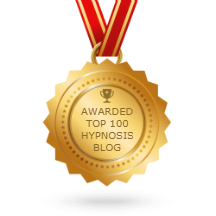by Hervé Boisdé
By now most Americans have heard of the "opioid crisis". News reports regularly bombard readers with scary stats and stories about an ever increasing US dependency on prescription pain medicines and the "epidemic" abuse of those drugs. Opioids are largely blamed for rising drug-related deaths and the fact that overdoses are now the leading cause of death for Americans under 50.
While healthcare administrators and politicians struggle with the ramifications of this national problem, Americans are left wondering; what are the options for pain management?
One often-overlooked safe alternative is hypnosis.
A quick search on WebMD reveals the following: "When researchers at Mount Sinai School of Medicine in New York analyzed 18 studies, they found moderate to large pain-relieving effects from hypnosis, supporting its use for pain management."
Hypnosis is being increasingly used for medical procedures as an alternative for anesthesia for patients that don't handle either general or local anesthetic drugs well, or for lowering the doses of those drugs. When I was doing my hypnotherapy training for medical support hypnosis, we watched videos of surgery being done on patients who were neither unconscious or drugged, with no pain, thanks to a deep hypnotic trance. In fact the lead teacher at my school shot a video of himself getting a crown replacement at the dentist after he did self-hypnosis to make himself numb to the pain of that dental procedure. He didn't do it simply to impress his students, although it did do that as well; he is one of many people that simply can't comfortably tolerate the pain-numbing agents that dentists typically use on their patients.
I've also heard from friends and relatives in France that have tried hypnosis for other medical procedures offered in the hospitals there. One female relative explained to my mother that she had undergone cataract surgery painlessly with nothing more than hypnosis to make her feel comfortable. It appears that in Europe these approaches to pain-management are becoming more and more common. So it stands to reason the US could be following suit.
But besides surgery and a visit to the dentist, hypnosis could also be an option for managing chronic pain. With little to no side-effects, hypnotherapy is safe and can have other healthy benefits, such as a way for patients to manage stress on their own, with self-hypnosis and hypnosis recordings.

